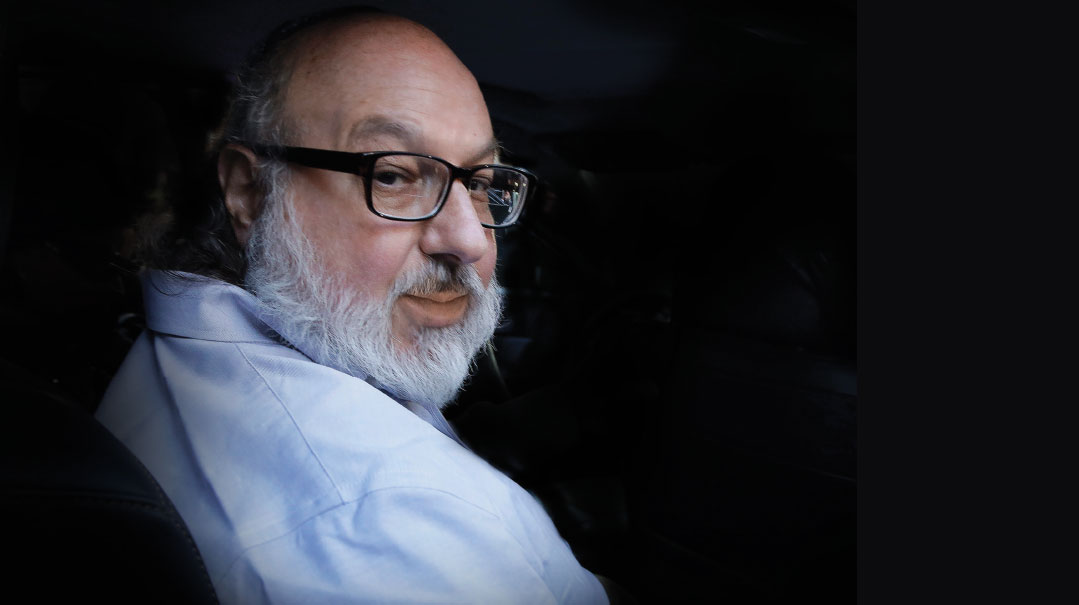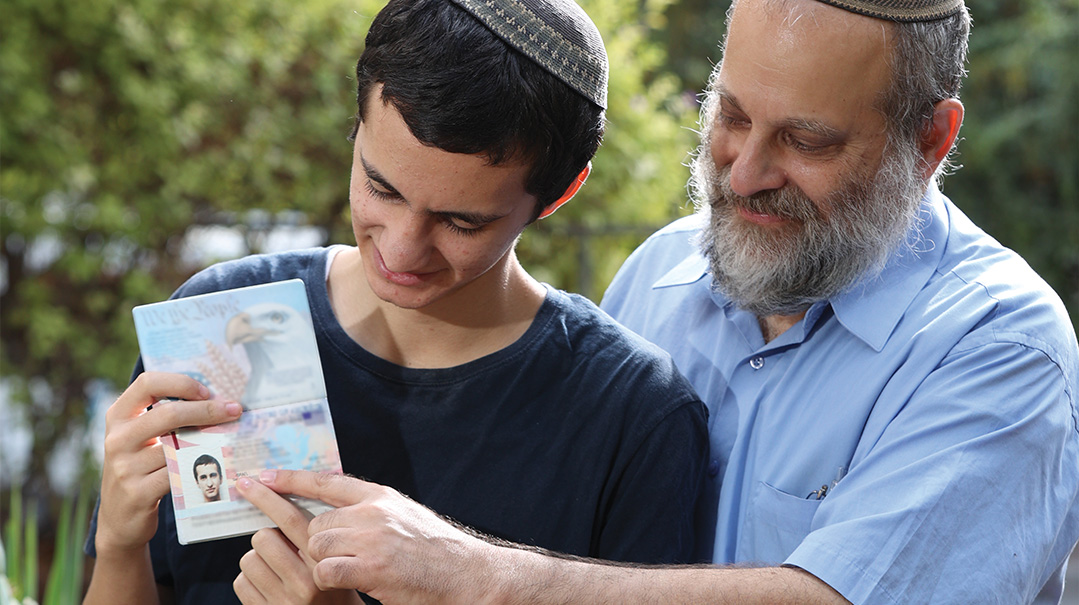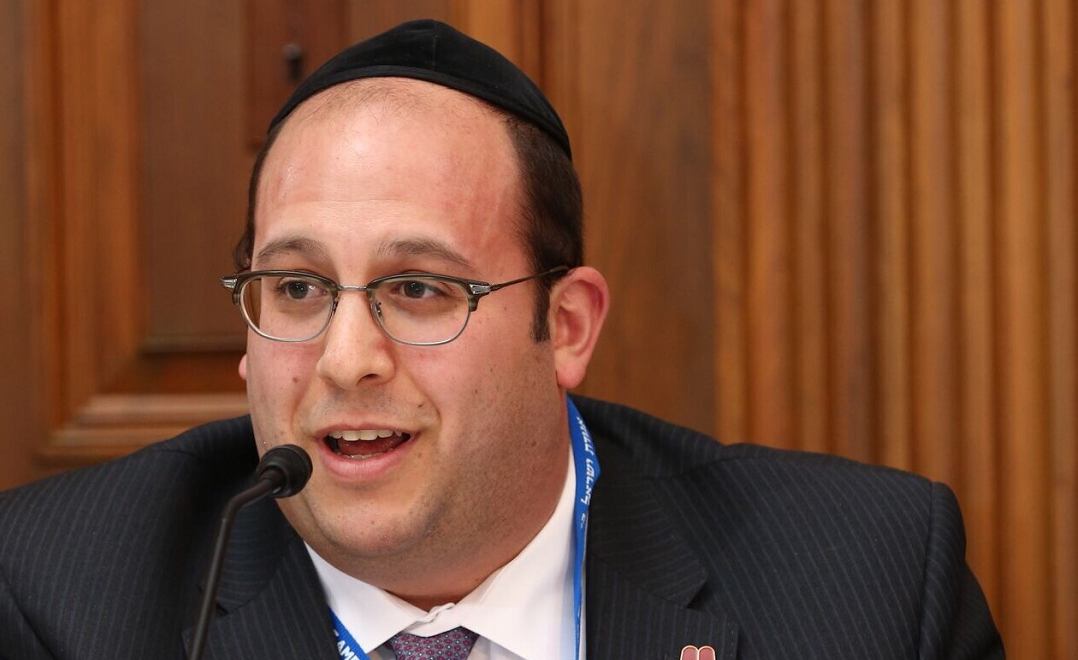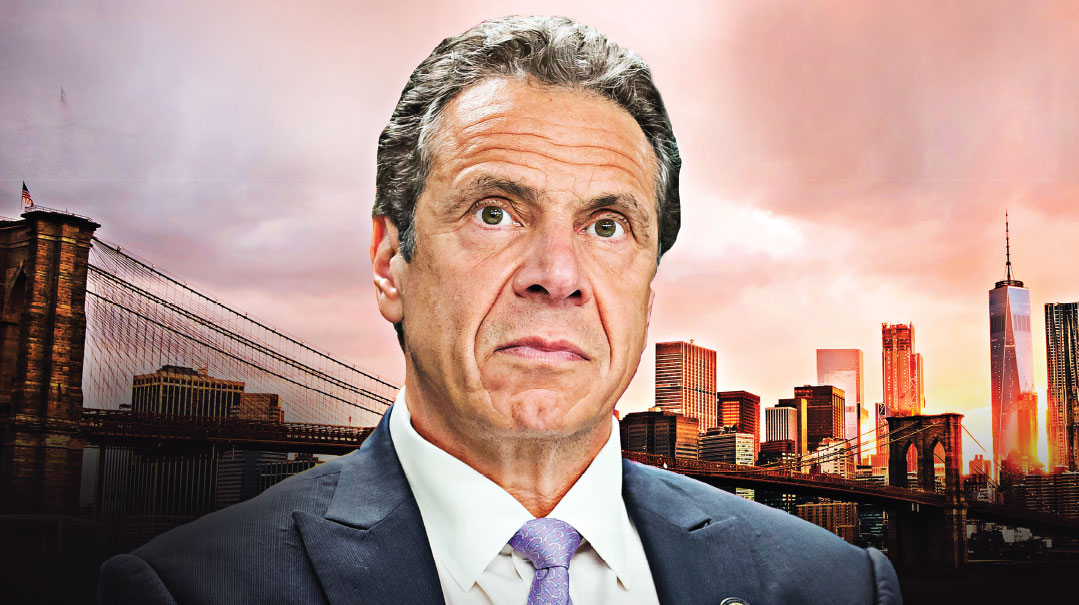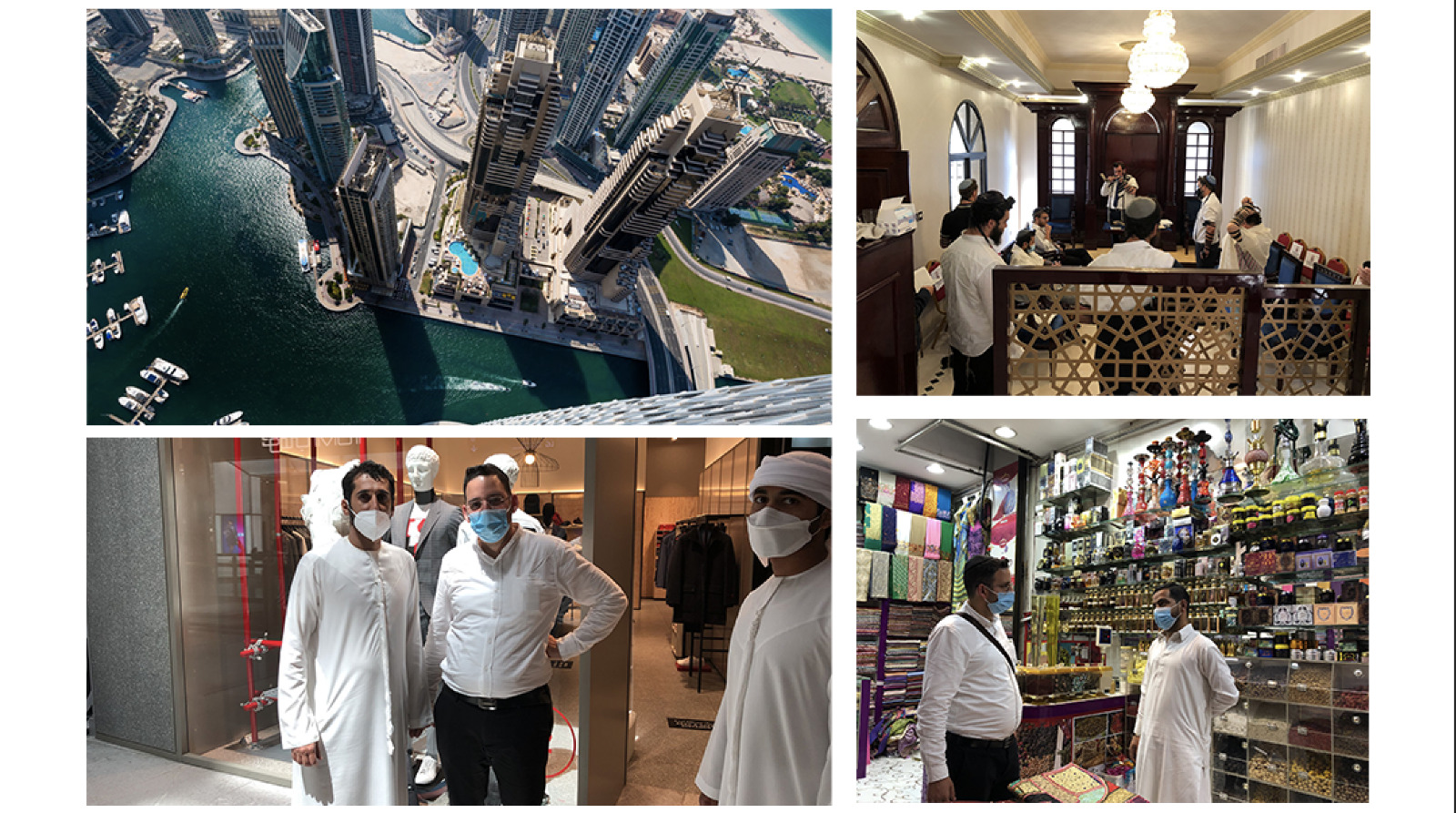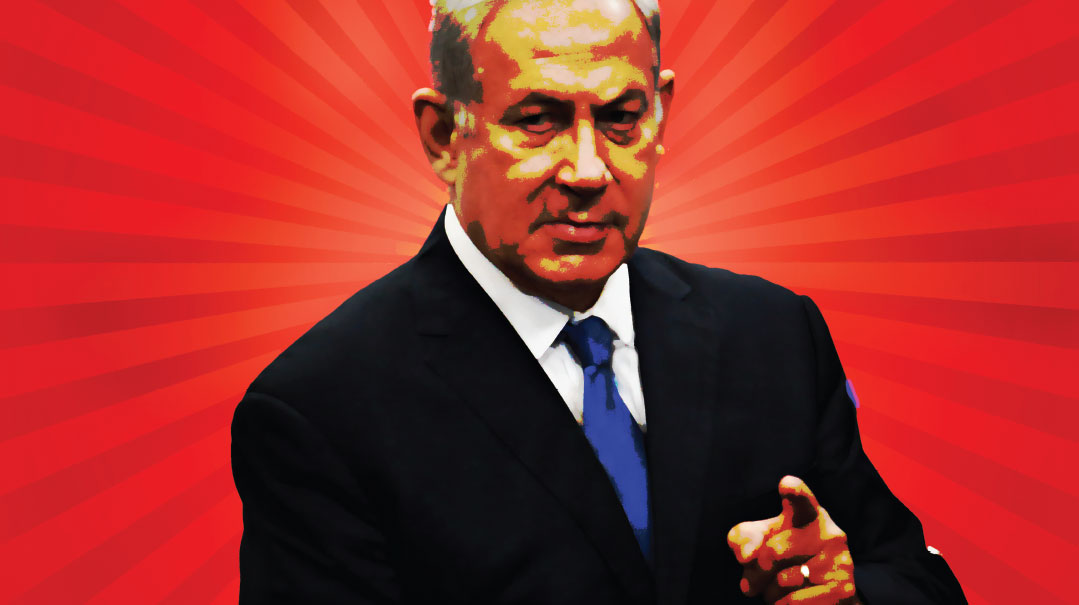Who Did This?

New York City Councilman Kalman Yeger points a finger at soft anti-Semitism
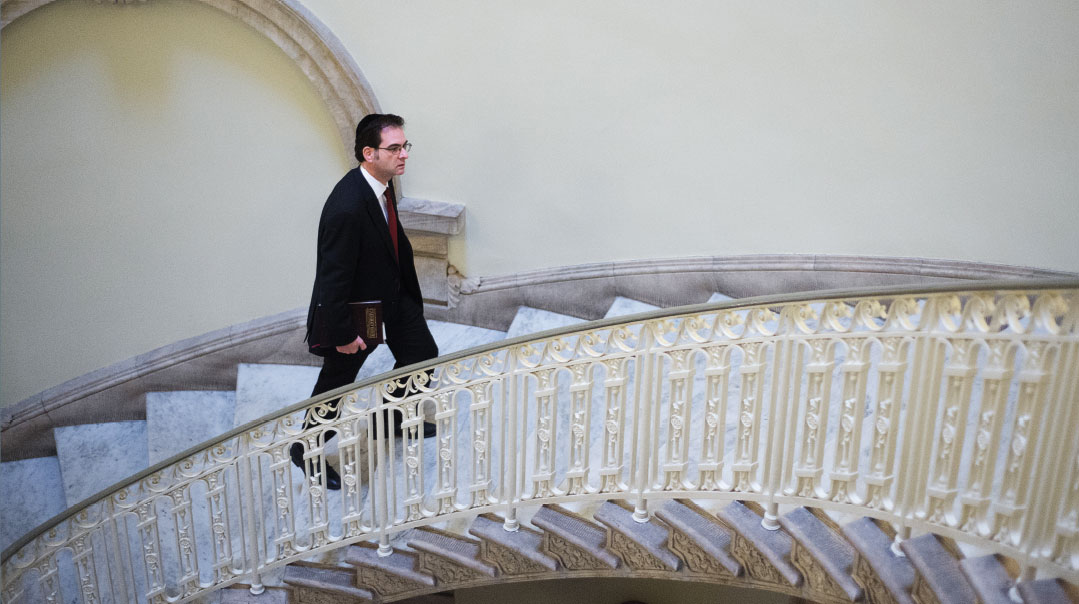
(Photos: Jeff Zorabedian)
It’s no secret that the Orthodox Jewish community in the New York City area has been fending off near daily attacks.
Assaults on the streets of Williamsburg, Crown Heights, and Boro Park, are now common. Hate erupted into murderous violence in Jersey City, and a man attacked Jews with a machete in Monsey.
These attacks have rightly been roundly condemned, and many (but not all) of the perpetrators have been apprehended. In a signal of solidarity, Governor Andrew Cuomo gave the outgoing invocation of his State of the State address last week to Rav Chaim Leibish Rottenberg, in whose house the Monsey assault on Chanukah took place. It was the first time a chassidishe rebbe spoke at the annual speech.
But along with the physical attacks, there’s also been an accompanying tone of soft anti-Semitism. There’s the bigotry of not hating the frum Jew but hating his way of life, his system of education, his practices. Perpetrators of this crime tend to wear suits and ties and seek their goals through legislation rather than machetes.
In a march that stupefied the Orthodox community last Sunday, many of these haters walked three miles to take a stand against “hate” and “fear.” Protesters included elected officials like Rep. Alexandra Ocasio-Cortez, Public Advocate Jumaane Williams, Councilman Brad Lander, and assorted leaders of the BDS movement. These politicians have all trafficked in anti-Jewish bias, if not outright anti-Semitism. In New York City, their words have only occasionally been condemned publicly. Until last week.
In a blistering speech delivered on the New York City Council floor, Councilman Kalman Yeger blasted his colleagues for on the one hand attending the March Against Hate, while on the other regularly fanning anti-Jewish bias. “For far too long, too many who hold public office and those who portend themselves to be members of the media have tinkered at the fringes of anti-Semitism. They market an ‘us versus them’ message against Orthodox Jews.”
Punctuating his speech with the phrase, “You did this,” the Brooklyn Democrat excoriated elected officials and members of the media whose rhetoric has led to dehumanizing Orthodox Jews.
“When you deliberately paint a portrait of Orthodox Jews as backward members of society who don’t vote how you like, who don’t do what you want, don’t educate our children how you wish, you did this.”
Without mentioning any names, he denounced politicians who make their animosity for Orthodox Jews clear while at the same time using Jewish holidays such as Chanukah “to show up near a menorah” and “pose for pictures with Jews.”
“I won’t be silent about who’s responsible,” Yeger continued. “The notion that a lack of tolerance is at issue, as if Orthodox Jews are so heinous that our presence in society is something to be tolerated, is grotesque. We have the right to live in our city like anyone else. We have the right to go about our day without being assaulted. We’re not doing this to anyone. You’re doing this to us.
“You attack our yeshivos regularly, repeatedly, with hatred. But when ever has anyone seen a group of yeshivah students run down a street and smack someone in the head? Why is that never discussed — how we raise our children to be honorable, intellectual, decent members of society, how we are kind to one another?
“You paint us all with a scarlet letter of derision. You did this to us.”
In an exclusive interview with Mishpacha, Yeger said that his remarks herald a new era in the council. No longer, he said, will lawmakers be able to seek the friendship of anti-Semites or attack the yeshivah system and then whitewash their actions by attending events in the Jewish community and professing their friendship.
What prompted your speech?
It’s been percolating, not just with me, but perhaps I was the loudest in the last week. People were having conversations about some who hold public office, some in the media, who talk about how much it “pains” them — and I’m putting pains in quotes — when there’s an anti-Semitic attack, but their words in many cases are the ones that lead to it.
I deliberately didn’t name names — and I’m not going to do that today. If I wanted to say names, I would’ve done it last week. What I told reporters on Wednesday was that those who I’m talking about know that I’m talking about them. There’s an old saying — “if you think I’m talking about you, I’m talking about you.”
I think that some of those members do know that, public officials in the city who literally dance on the fringes of anti-Semitism on a regular basis. They come hang out with us, and then go hang out with rabid anti-Semites, and they think it’s okay because they took a picture with a Jew. It’s time they understand there’s a price to be paid for that.
The heimish community, in my opinion, did not attend this march because the entire thing was not geared toward making us feel comfortable.
By the way, this was not limited to heimish people as individuals but the three elected representatives stayed away as well. And there’s a reason for that.
The feeling was that progressive groups who oppose us throughout the year wanted to show they’re standing against hate in the way that they’re used to. So the community didn’t want to spoil it. Then, less than a week later, you gave your speech, basically calling them out for their actions the other 364 days of the year.
Yes. Look, I think we saw pictures of some of these public officials who regularly beat us up verbally, and then they wonder why we’re getting beaten up physically. They think that it’s all okay because they showed up on Sunday and they held up a sign.
As a sequel to your speech, you sent a tweet to the Forward newspaper that “you did this too.” Any specific article you had in mind?
I think that with a publication like the Forward, you don’t need to have a specific article in mind, you have to simply have its history in mind. They have never passed on an opportunity to take a smack at the Orthodox community, the chassidishe community. They do it all the time and they do it with impunity.
It is true that of late they have also published positive articles, but that doesn’t distract from their history. Honestly, I wasn’t going to say anything to them [but then] the editor in chief decided to tweet at me, “I read your impassioned remarks about anti-Semitic attacks at yesterday’s City Council meeting. Won’t you help us get the crucial information about who is perpetrating these crimes and how #NYPD is handling?”
What am I going to do to help you? Are you kidding me? In my two years and twelve days in the council, I have never once returned a phone call from The New York Times or from the Forward. Not once. The only recent times I could recall hearing from the Forward was in 2019, when I heard from them twice. One issue was measles and the other issue was garbage in Boro Park. But I never returned their calls.
What is their record when it comes to the measles? That it’s all our fault. And on garbage? I simply used their previous record to determine on my own that they’re going to write an article that frum Jews are dirty and that’s why there’s garbage in Boro Park. I didn’t need my name attached to that.
This is a vile publication that has a long and sordid history of putting its foot on our neck. We completely reject the idea that they aren’t the ones who did this. They’re part of the problem.
A lot of these people who, in your words, “did this,” have been saying that yeshivos are deficient. It’s a well-known rule that attacking the way a community educates its children is an attack on the community. Attacking the yeshivos is an attack on us. Still, these people claim that they just want to help us improve our schools. How do you deal with people who ask you about yeshivos?
There are elected officials who never seem to care one iota about anything related to Orthodox Jews. They don’t care about our security. They don’t care about our education. They don’t care about anything in our community. They don’t come to any events in our community.
But when it comes to rallies against our yeshivos, calling us the most terrible names, they’re the ones there. Tell me what that’s about. If that’s not anti-Semitism, I don’t know what is. The attacks on yeshivos are a way for a lot of people who hate our guts to wrap themselves in an on-paper authentic issue. But when you call them out, they say, “No, no, G-d forbid, I just care about children. I’m not an anti-Semite, I just care about the children and you’re not educating the children.”
These people don’t care about anything else in the community. They don’t care about the security of the yeshivos. These people voted against Councilman Greenfield’s security bill [which would have provided private schools the same security funding as public schools]. They’re not sponsoring my house of worship security bill, they’re not sponsoring Councilman Chaim Deutsch’s expansion of Councilman Greenfield’s security bill. And they care about our children? Our children’s education? Come on.
In the past few years, a false perception has been created that yeshivos don’t provide a good education. How do you respond to reporters or to other lawmakers who want to know what’s really going on?
This is like the four sons in the Haggadah.There are people in public life and in the media whose questions about this topic are legitimate because they come from a place where they just don’t know, and they would honestly like to hear both sides. With these people, you have an obligation to try to lead them to the right answer, to give them real, live examples, and show them what we’re talking about.
When you have, for example, a publication like The New York Times, which has repeatedly used a stock photo of a young boy wearing a bent-down black hat, standing on Coney Island Avenue and Avenue I and crossing the street. And in that picture he’s facing the Yeshiva of Flatbush. That’s the picture that shows up repeatedly in the Forward and The New York Times.
Wherever I see that picture — and at times I’ve engaged the Times on Twitter about this — it’s so clear what they’re doing. It’s not about the yeshivah, it’s about the boy. They put the yeshivah in [the background] so they could say it’s about the yeshivah: young boy, black hat, clearly yeshivish, with a yeshivah in the background that probably doesn’t have a single boy with a black hat. More importantly, it’s a frum yeshivah that teaches its children Torah, mitzvos, and a robust secular education.
It’s not about the yeshivos. For those people, it’s absolutely about the boy. It’s about the hatred they have for him, for his family, and for his community. And that’s what I responded to.
What are your thoughts on Mayor de Blasio’s reaction to the recent anti-Semitic violence?
I think it has to be said on principle that any time the mayor hears about another attack or an incident or the more heinous crimes, like what happened in Monsey, what happened in Jersey City, I really believe he feels pained. I think there’s an inability for people to separate who the mayor is as a human being versus the government’s response to what’s going on.
The mayor is an incredible friend to the community, and he has been for a long time. I think it’s fair to say, to my recollection, that there hasn’t been a mayor with such a personal relationship with the frum community. That’s the principle from which everything flows.
The government’s response has been lacking. That’s been on all levels. That’s why my colleagues and I have joined together and called on the governor to step in. Because, at the end of the day, a city is but a unit of the state. The state has the ultimate responsibility to do things if the cities are failing, if the municipalities are failing.
In my estimation and based on what I’ve seen, the city is not providing the resources to the local precincts to have visibility on the street. Now, you have police officers standing in front of one shul, and then you go six blocks and there’s not a cop to be found. It just doesn’t make sense. You have to protect all of our houses of worship. You have to protect all of our yeshivos.
I think this is easily accomplished by adding just another 100 cops [to neighborhoods] in the frum communities. But sending five or six here, eight or twelve there… Chaim [Deutsch] and I had to go down to the police department and literally beg for it on our knees. That’s ridiculous.
Why are we not entitled to that protection? We clearly are under attack. And when you see some of the hyperbolic responses from those in the media and elected officials — they criticized us for asking for the National Guard and for additional cops. “More police is not the answer,” they say. I don’t understand. More police are not the answer to people attacking other people on the street? How can that not be the answer? That’s the core answer. If somebody is about to attack somebody, the cop on the street stops it.
So what’s the reality? They want to deny us protection.
There are elected officials in this city — not the mayor — who fight our requests for additional police protection.
What I think happened with the mayor is, he has directed the police department to provide the additional resources. But it’s a blank statement. It’s not clear what that means. What we’ve seen is four, six, eight, or twelve cops here or there. We haven’t seen the influx that is deserving of a city that has a 35,000-member police force.
That’s why Chaim, Simcha Felder, Simcha Eichenstein, and I got together and asked the governor to fix this.
When you say there have been elected officials fighting this request you’re probably referring to Jumaane Williams, the public advocate.
Well, he’s surely one of them and he’s definitely one of the most well-known. Some of the stuff he’s been saying on Twitter is ridiculous. And some of the things he’s been saying at press conferences is insanely ridiculous.
Jumaane spent two days prior to my remarks in front of the council essentially attacking Jews. He had a press conference in the Bronx on Monday claiming that as a community we’re getting resources that other communities are not getting.
He’s lying about that. He specifically referred to an announcement that the governor made. Assemblyman Eichenstein publicly said that that announcement referred to money that was put into the current year’s budget way back, about eight months ago. It’s also not just for the Jewish community, it’s for every community. It’s for security. But Jumaane felt comfortable enough to grab a microphone and say, “the Jews are getting this. Where’s ours?”
I know what it’s about. When a guy of his stature gets up and says those kinds of things about the Jewish community, it has nothing to do with the substance of what he’s saying. It has to do with, like I said on Wednesday, tinkering on the fringes of anti-Semitism. Now, I don’t know which side of the line he’s on right now, but he’s definitely hovering very close.
Do you plan any follow up on the speech?
Well, I don’t like referring to it as a speech. Those who know me know I’m not a speechifier. I don’t spend all day sending out press releases. I don’t run around going to rallies and giving fiery remarks on the floor. It’s not my style.
I think it needed to be said. I think it needed to be said by me. I think it needed to be said on that day. The follow up on that speech is very clear, which is, I’m watching. We’re all watching. And we know who these people are. We know who’s doing this. We know the members of the media who are doing it. We know the elected officials who are doing it.
I think the message has to go forth that we’re not going to be silent anymore. We’re going to call you out. We’re going to tell people who you really are. We’re not going to pretend anymore.
To the elected officials who spend 364 days of the year hanging out with anti-Semites and one day a year taking pictures at a rally, please don’t show up at our next breakfast or at our next dinner or at our next event. Don’t do us any favors. You want to be an anti-Semite, just be an anti-Semite. But stay away from us. Don’t pretend.
(Originally featured in Mishpacha, Issue 794)
Oops! We could not locate your form.







